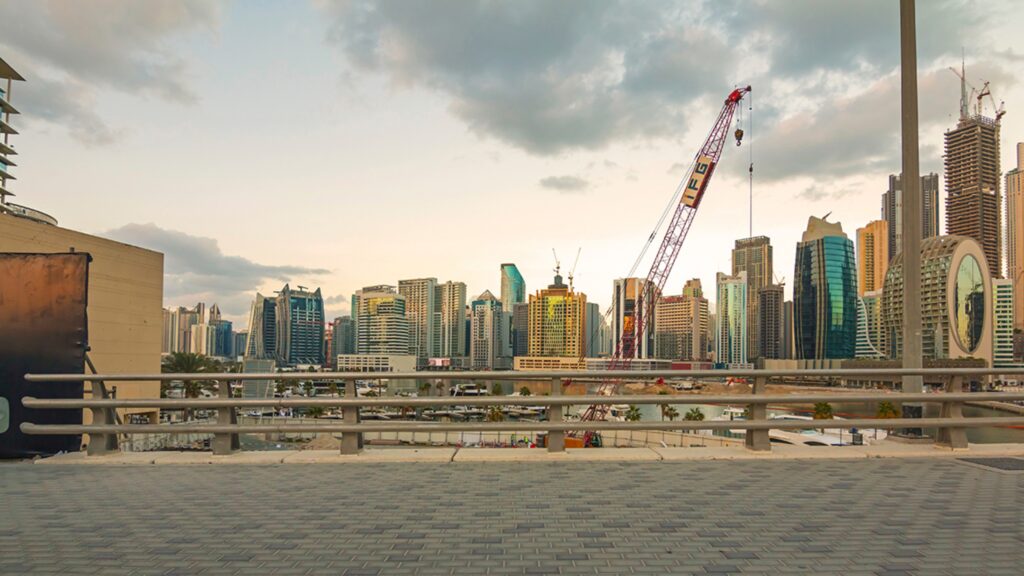In a world where global politics can impact local economies, the UAE finds itself at the crossroads of a potential opportunity. With former U.S. President Donald Trump’s proposed tariffs reigniting conversations around global trade policies, real estate experts are predicting short-term shifts in the UAE property market. As suppliers and manufacturers seek alternative trade hubs, the UAE — already a regional logistics powerhouse — stands to benefit.
But what does this mean for investors, developers, and buyers in the property sector? Let’s explore.
Trump’s Tariffs: A Quick Overview
Donald Trump, known for his protectionist trade policies, has recently reiterated his intentions to impose new tariffs on imports should he return to office. These tariffs could range across various industries — from automobiles and electronics to steel and consumer goods.
The move has raised global concerns about a potential trade war, prompting businesses to reevaluate their supply chain strategies. While this creates tension in some regions, others — like the UAE — may become attractive alternatives for trade, storage, and distribution.
UAE’s Strategic Advantage in the Supply Chain
The UAE has long been a central node in the global supply chain network. With world-class ports like Jebel Ali and state-of-the-art free zones in Dubai and Abu Dhabi, it offers a stable, business-friendly environment in a turbulent global market.
As companies look to shift operations from tariff-impacted markets, the UAE is emerging as a top alternative. This will likely boost demand in the logistics, warehousing, and industrial property segments, particularly in areas like:
- Dubai South (home to Al Maktoum International Airport and the Expo 2020 site)
- Khalifa Industrial Zone Abu Dhabi (KIZAD)
- Jebel Ali Free Zone (JAFZA)
Predicted Short-Term Changes in the UAE Property Market
1. Spike in Demand for Industrial and Commercial Real Estate
As businesses relocate or expand their regional operations, we can expect an uptick in demand for warehouses, logistics hubs, and manufacturing zones. This is particularly true for Chinese and European firms affected by U.S. tariffs seeking Middle East distribution points.
2. Rental Increases in Logistics Hubs
Short-term rental prices for warehouses and industrial units may rise as demand surges. Investors in these asset classes could see higher yields over the next 12–24 months.
3. Increased Foreign Investment
With shifting trade dynamics, foreign investors may turn to the UAE as a secure base for long-term investment. The government’s pro-investor stance, visa reforms, and 100% foreign ownership in many zones make it even more attractive.
4. Residential Property Ripple Effect
As industrial zones grow, surrounding residential communities — especially affordable housing — may experience growth. Areas near Dubai South or KIZAD could see increased demand from professionals moving in.
Opportunities for Real Estate Investors
If you’re an investor, this shift presents key opportunities:
- Buy-to-let industrial properties in growing logistics zones
- Off-plan commercial developments in free zones
- Affordable housing units near employment hubs
- Long-term land investments in developing industrial corridors
Moreover, diversification into commercial and industrial property can act as a hedge against residential market fluctuations.
What Developers and Agents Should Watch
- Shifting client profiles – More interest from Asian and European logistics companies
- Free zone incentives – Watch for new packages or exemptions introduced to attract foreign businesses
- Flexible leasing models – Demand may increase for short-term or build-to-suit spaces
- Technology integration – Smart warehouses and automated systems are on the rise
Final Thoughts
While Trump’s proposed tariffs may disrupt certain markets, the UAE stands to gain as global players reconfigure their supply chains. This will likely lead to short-term — and potentially long-term — changes in the UAE property market, particularly within the logistics and industrial sectors.
For investors and developers, this is a chance to capitalize on new demand trends, especially in zones strategically positioned for global trade. As the world adapts, the UAE continues to prove its resilience and attractiveness on the international stage.
Looking to invest in UAE real estate?
Whether you’re eyeing logistics hubs, commercial zones, or high-yield residential areas, our experts can help you make informed decisions backed by market insights. Contact us today to explore the best opportunities in the evolving UAE property market.



